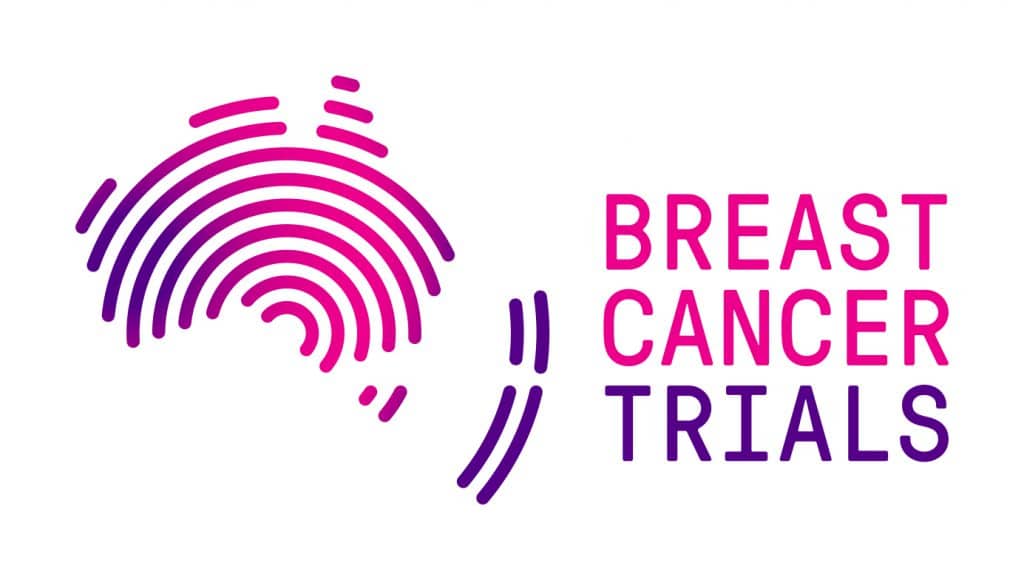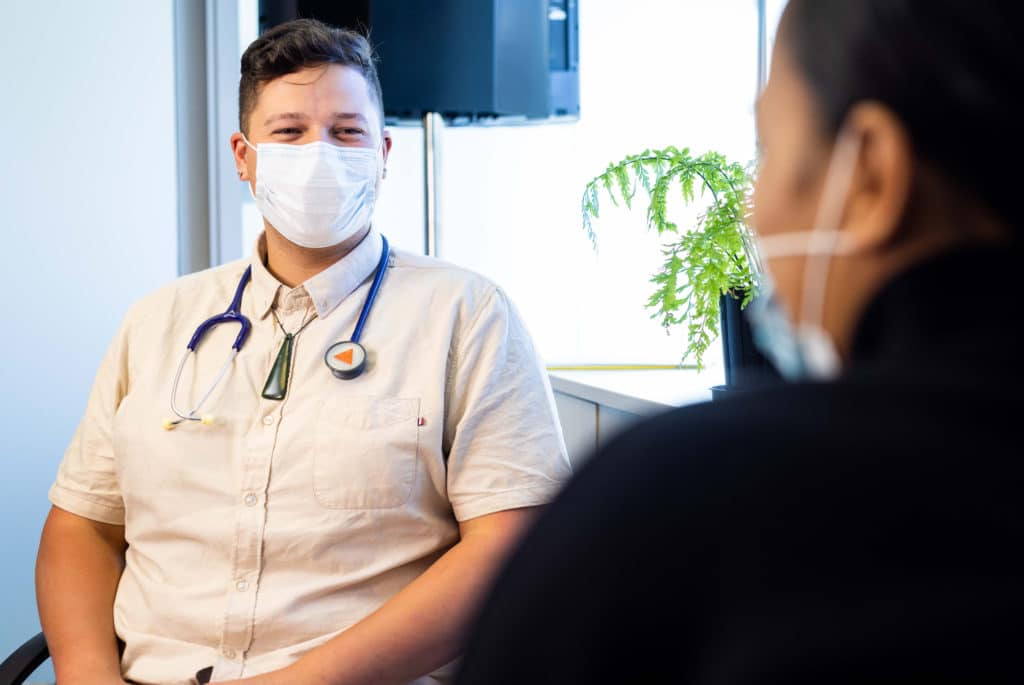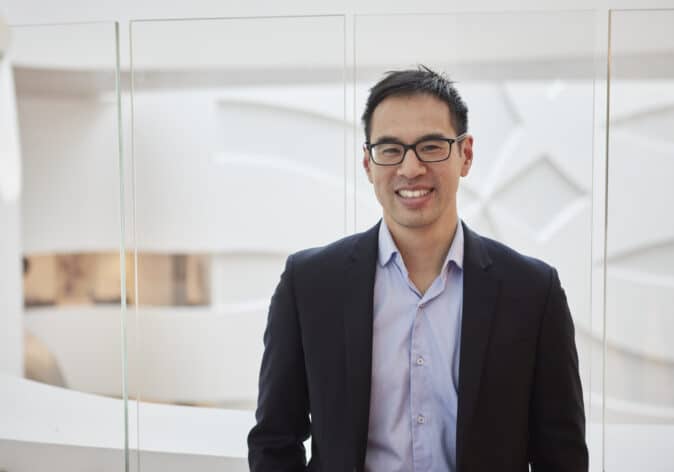Adapting to the ‘New Normal’ of COVID-19
While the rate of COVID-19 infections in Australia and New Zealand is in decline, cancer patients and those who are immune-compromised are being cautioned to continue following social distancing recommendations.
When COVID-19 began to spread across Australia and New Zealand, front line health workers mobilised to ensure their patients would be safe and still receive the best possible care.
Breast Cancer Trials has approximately 800 members, working across more than 100 institutions in Australia and New Zealand. Our membership base is made up of various health professionals including oncologists, surgeons, pathologists, radiation oncologists, nurses and clinical trial coordinators, all of which are involved in breast cancer patient treatment and care.
We reached out to some of our members to ask how their workplaces have changed and how they have had to adapt to the new COVID-19 environment.
Professor Fran Boyle – Medical Oncologist and Scientific Advisory Committee Member
Professor Fran Boyle AM is a Medical Oncologist at North Sydney’s Mater Hospital, where she is the Director of the Patricia Ritchie Centre for Cancer Care and Research, and Professor of Medical Oncology at the University of Sydney. Professor Boyle has been involved in breast cancer clinical trials research for the past 20 years. She has chaired the Breast Cancer Trials (BCT) Board and is a current member of the BCT Scientific Advisory Committee.
She says that they have been sure to communicate all changes to their patients.
“We are reassuring our patients that oncology services around the country will continue during COVID as it is considered an essential service.”
“Surgery, radiotherapy and chemotherapy services have made some adjustments, to ensure greater safety for patients and staff and our team meetings are continuing, mostly on videoconference, sometimes with hilarious results, as we master the technology in our PJ’s.”
Professor Boyle said they have been able to utilise telehealth more for the benefit of their patients.
“The major advance has been the ability to use telemedicine for routine office visits, and this has been appreciated by most patients. If there is a need for a physical examination, or test results to be given, then a shorter clinic visit can be scheduled.”
She also shared advice of patients with low immunity and those who are taking endocrine therapy.
“The message to patients with low immunity (recent chemotherapy or radiotherapy, or metastatic disease) is to have a flu vaccine early, and to try to stay at home. You can ask your team for a letter to allow your carers to shop for you. Exercise is still important, so try to walk or use an exercise bike at home. Also ask your team what to do if you get a fever, as this may be different from usual.”
“Patients on adjuvant endocrine therapy, for example Tamoxifen or Aromatase inhibitors, are not immune suppressed and should take the precautions recommended for the general community. This includes having a flu vaccine this year. Your annual mammogram may be delayed till later in the year, which will be fine. Of course, if you notice something new, alert your team for an earlier appointment.”
Dr Janine Lombard – Medical Oncologist and Scientific Advisory Committee Member
Dr Janine Lombard is a medical oncologist who specialises in breast and gynaecological cancers. She has a busy clinical practice and also shares her expertise as a Breast Cancer Trials Scientific Advisory Committee member.
She said her practice began preparing for COVID-19 once the news began to spread around the world and the first cases were confirmed in Australia.
“There was the news from China about the virus, which was more and more worrying, then came the first cases in Australia and the news about the health system on its knees in Italy.”
“Infection disease specialists were also talking about 1000’s of patients needing ventilation in Australia by April.
“With this came fear; mostly the fear for our vulnerable oncology patients, many coming weekly for either chemotherapy or radiation – already with compromised immunity from cancer and now staring down the barrel of a pandemic.”
Like Professor Boyle, Dr Lombard said they are thankful for Telehealth.
“Up until now we used telehealth sparingly for patients who live remotely. But now, it has become our saviour.”
“It has allowed us to keep so many patients in the safety of their homes while we try and navigate a strange new world of not being able to reach out physically and comfort a distressed patient or family member.”
She said her hospital immediately set up a triage for acutely unwell oncology patients.
“We have set up a rapid access area to keep our oncology patients out of the Emergency Department if they do not have respiratory symptoms. This has been staffed by our experienced nursing staff who have stepped up, no questions asked.”
She also said that there is now a ‘backup’ oncologist on call at all times in case the rostered oncologist contracts COVID-19 or has to self-isolate. She has praised her team for their dedication to upskilling in this time and said they are practicing social distancing amongst themselves whenever possible.
“Every face to face meeting has been changed to some electronic format. We sit in our offices and brainstorm with our colleagues one office door away. It is such a strange world but mostly it works.”
Dr Lombard said it is a difficult period but everyone in the field has stepped up for their patients.
“There is a sense of purpose and collegiality not felt for a long time.”
Vicki Sproule – Clinical Trial Coordinator for GenesisCare
Ms Vicki Sproule is a Breast Cancer Trials member and a clinical trial coordinator at Genesis Care Australia.
Ms Sproule has been an active member for many years, after working alongside one of our Founders, Professor John Forbes AM.
She said it’s been a challenging period, but oncology care must continue.
“It goes without saying that COVID-19 has thrown the world a curve ball. Healthcare systems internationally have been significantly challenged as they reprioritise efforts and resources to respond to the surge in COVID-19 patients.”
“As challenging as this period is for both healthcare providers and communities, cancer continues and so must vital oncology care.”
She said their centres have made changes to how they deliver this care and have built on the infection control procedures already in place.
“We have also adapted how we manage oncology trials.”
“We have introduced a telehealth option for suitable patients participating in clinical trials. If a patient does need to attend one of our centres, they can feel safe and confident that we are maintaining the best standards to reduce risk,” she said.
“This includes screening all patients and staff, reducing the time a patient needs to spend in the centre and the number of people in our centres at one time, additional cleaning and access to personal protective equipment as needed.”
Ms Sproule said thankfully these measures have meant they are able to keep many of their trials open during COVID-19.
“In fact one of the trials coordinated by Breast Cancer Trials is an ideal trial to be recruiting to during this period.”
“The primary aim of the EXPERT trial is to see whether a genomic test of breast cancer tissue can be used to identify women who can safely avoid radiation therapy after breast cancer surgery.”
Ms Sproule said she is impressed by the support everyone is providing to each other in this time and is thankful for the research community that is still working on finding new and better treatments for breast cancer.
“As a research partner we have been well supported by trial sponsors to identify ways to safely manage patients on a trial, while also being able to continue to collect the important information needed to meet the trial outcomes.”
“The need for clinical trials that lead to new treatments that help people live longer, will continue to play an important role in cancer care and healthcare more broadly.”
Support Us
Help us to change lives through breast cancer clinical trials research



